Inside defending champions South Africa’s Rugby World Cup training base
The Springboks are attempting to defend their crown in France and, as Harry Latham-Coyle discovered, they couldn’t have picked a more perfect place to prepare
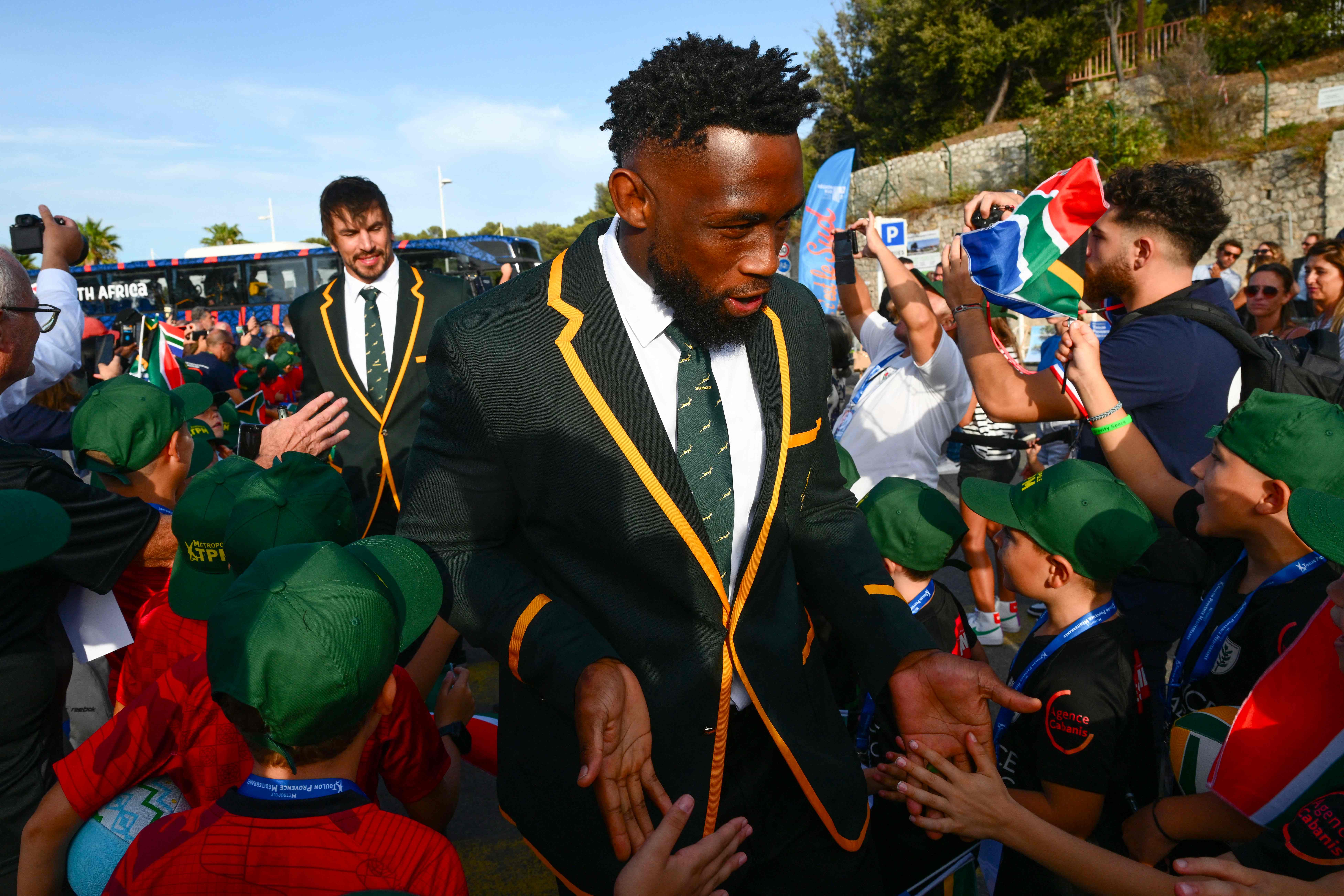
In a realm of rugby royalty, the current kings of the world are hard at work trying to defend their crown. Wander the streets of Toulon over the next few weeks and you might just spy a Springbok or two, with the reigning champions, South Africa, making the town their home as they bid for back-to-back wins at this Rugby World Cup.
It is a decade since the millions of French businessman Mourad Boudjellal powered Toulon to the first of three consecutive Heineken Cup crowns, a side of stars led by Jonny Wilkinson at fly half altering the landscape of European rugby. The trophy-laden days of those Galacticos are mostly at an end, but this remains a famous rugby town, and a remodelled Toulon side secured the second tier Challenge Cup in Dublin in May
Nestled at the western edge of the Cote d’Azur, the Stade Mayol is just a stone’s throw from the harbour where yachts intermingle with more menacing vessels from the naval base next door. Chat to any long-standing restaurateur, and there are plenty to talk to, and they will regale with tale of the greats – and with most all too aware the Springboks are nearby, it’s not long until Bakkies Botha, Juan Smith or Bryan Habana get a mention.
South Africa’s team hotel is across the bay in Sablettes, a coastal idyll for swimmers and sunworshippers. The best way to get there is, logically, by boat, with a ferry cutting through the shimmering sea in about 20 minutes.
Step ashore and it’s a short saunter down to the Springboks lair, overlooking the Grand Plage that gives their team hotel its name. The South African flags that adorn the bars and boulangeries of this seaside spot suggest that the world champions are being made most welcome.
“It’s not too difficult to do a World Cup when you are staying down south here!” quips Deon Fourie, the hooker-cum-flanker who is appearing in a first World Cup at the age of 36.
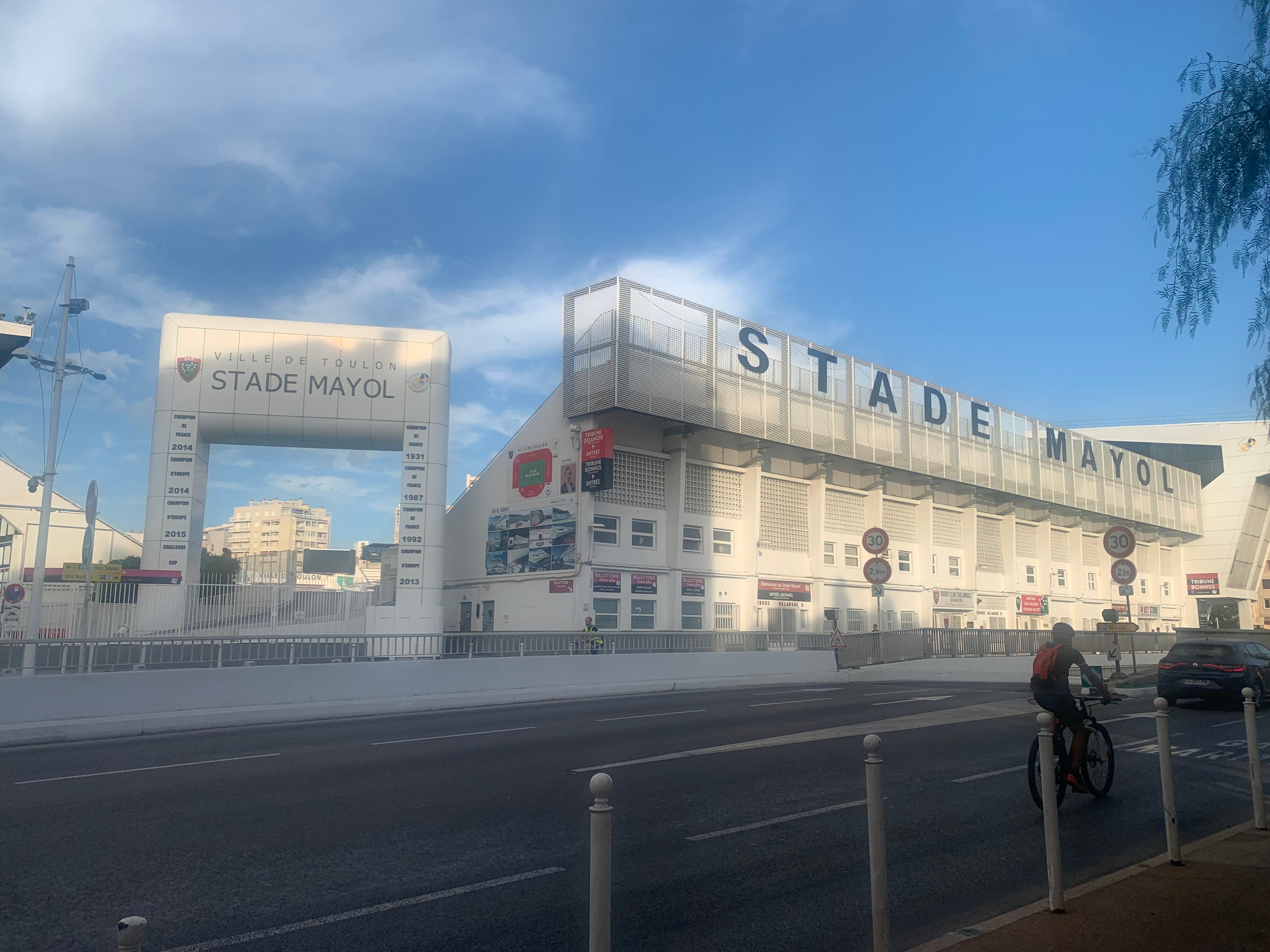
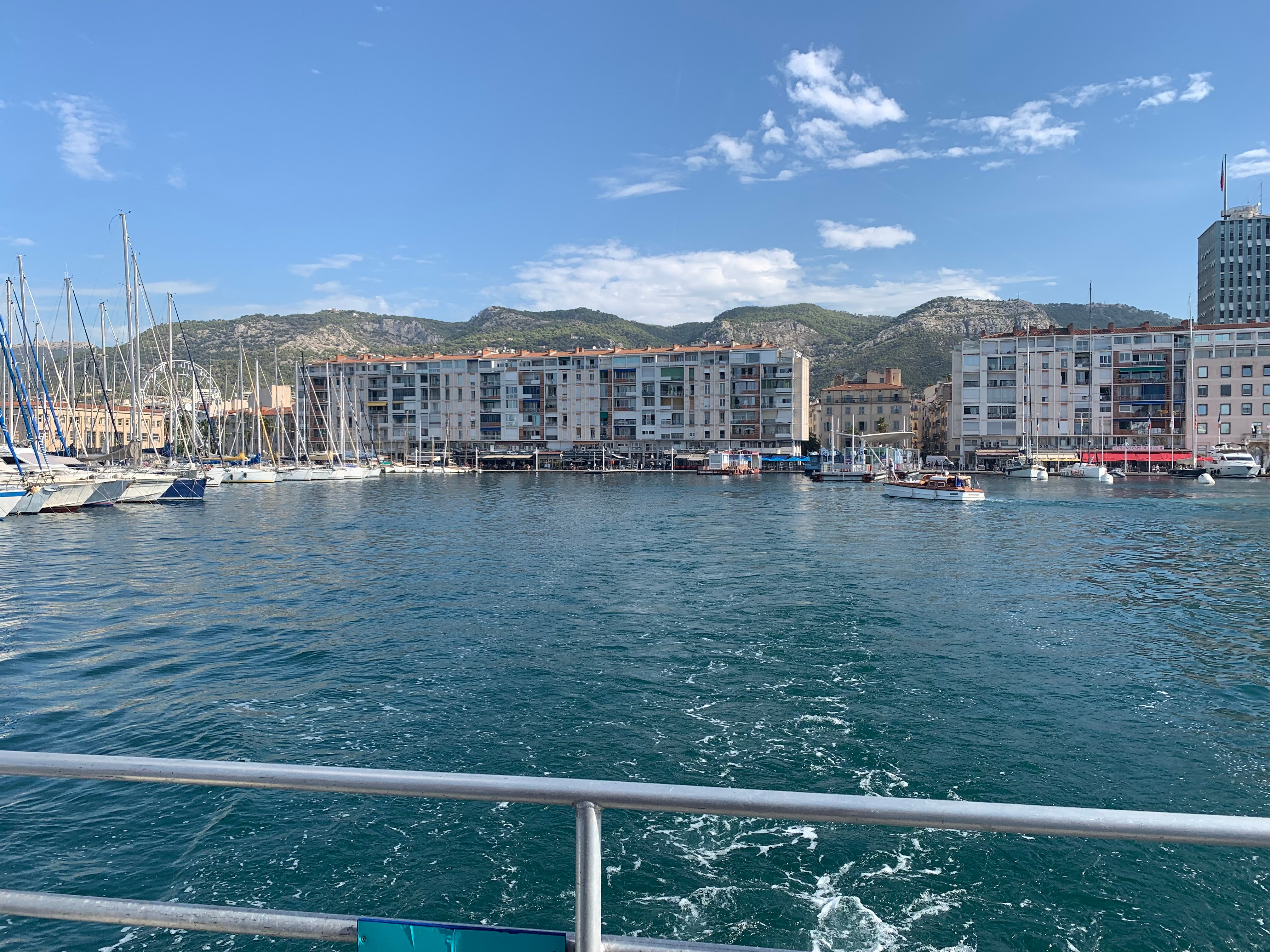
The watt bikes on the rear terrace suggest harder graft. For every team with ambitions to go deep at this tournament, managing fitness levels across an elongated campaign will be vital. The highly-regarded Aled Walters oversaw the Boks in that regard in 2019, but is now with England, with former Saracens strength and conditioning coach Andy Edwards appointed head of athletic performance. A team nutritionist is embedded within the hotel.
Much of this South African squad play their international rugby in a southern hemisphere schedule while featuring for their clubs in European competitions, which poses another challenge. But the players look in outstanding nick. Before arriving in Toulon a week and a half ago, South Africa were in Corsica, preparing for the heat and humidity that proved a tactical influencer on the opening weekend, with accuracy and frequency of kicking key with handling and taking contact tricky.
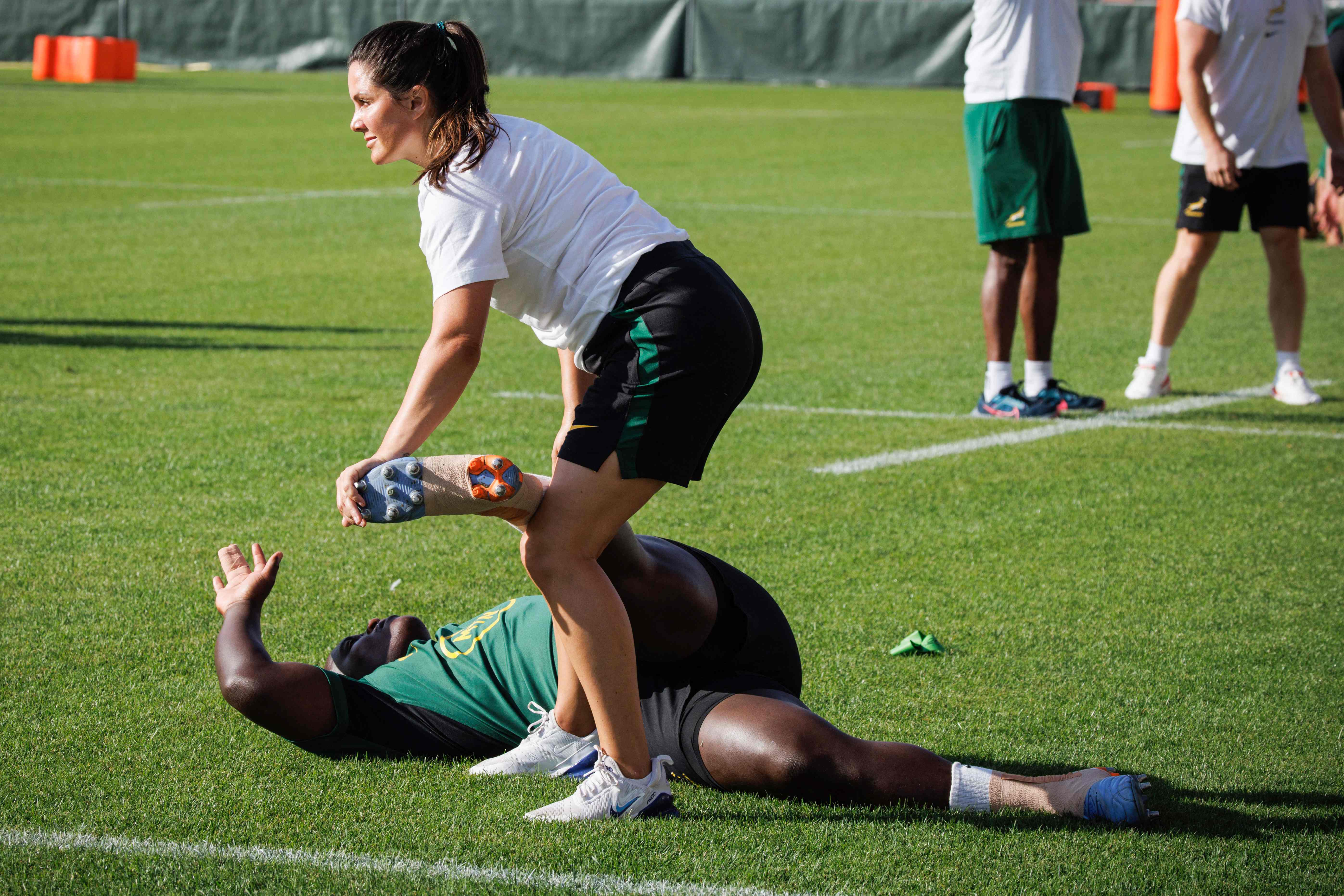

They could hardly have a more perfect place to prepare. Toulon’s RCT campus was picked out of three options available to the world champions, with a world class facility further improved by renovations and relaying of the pitch earlier this summer.
The opening win over Scotland was a reminder of how suffocating the South African defence can be, while Manie Libbok has added extra attacking potential at fly half. Where four years ago Rassie Erasmus fostered an almost underdog mentality, convincing his side that few saw them as contenders, now there is no escaping the fact that the Springboks have a target squarely on their back.
Assistant coach Felix Jones insists their mindset hasn’t changed, though. “We’ve been very process driven week to week. We have certain check lists, but it is not a box ticking exercise, if I can put it like that.
“We know we have certain things we want to cover in order to be confident going into the weekend and we try to keep that as consistent as possible in order to get as consistent a performance as possible. It doesn’t always work out that way in terms of consistency of performance, but our process we try to keep consistent.”
Increasing input is taken from a spine in the squad that has grown together.
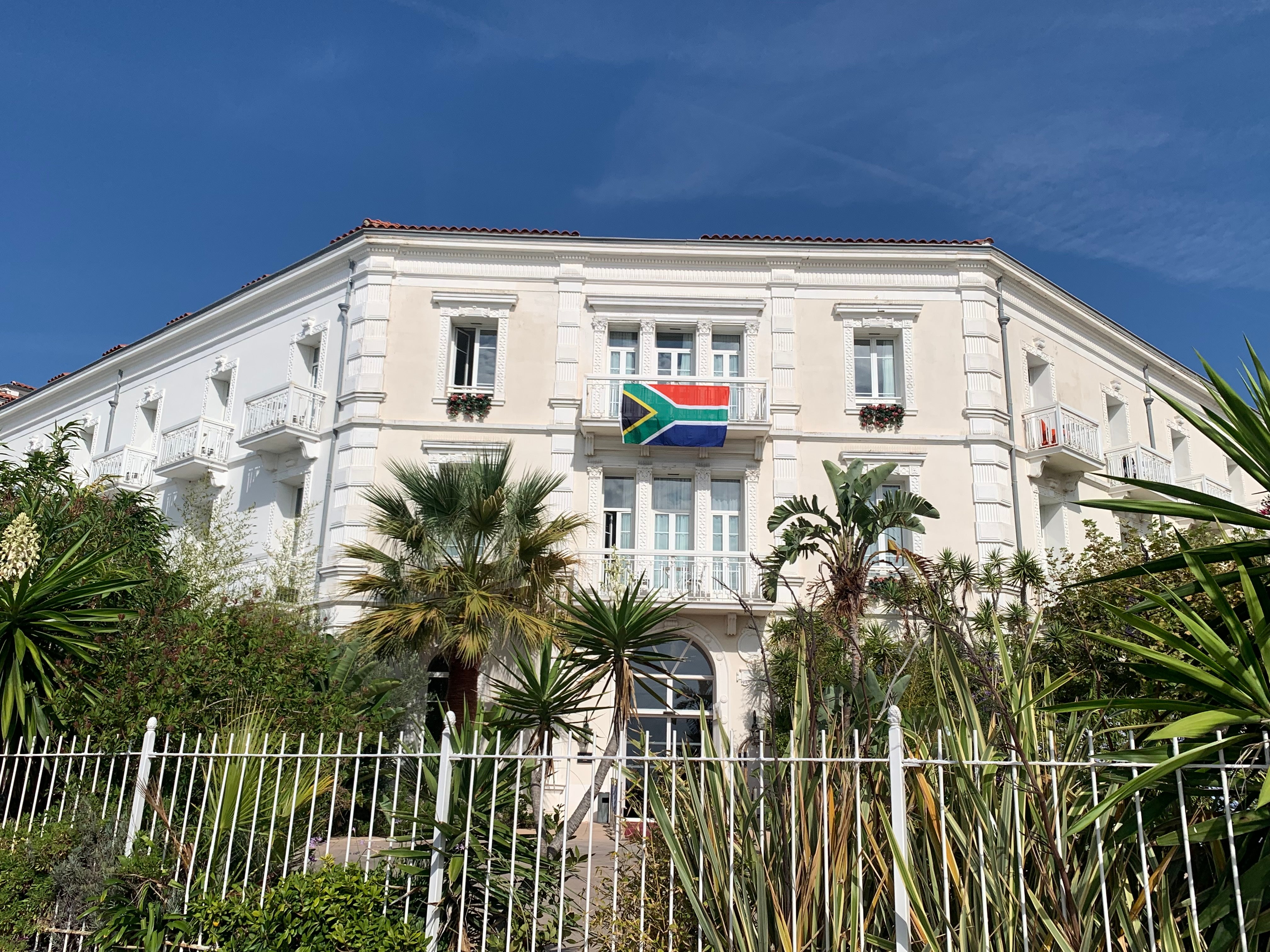
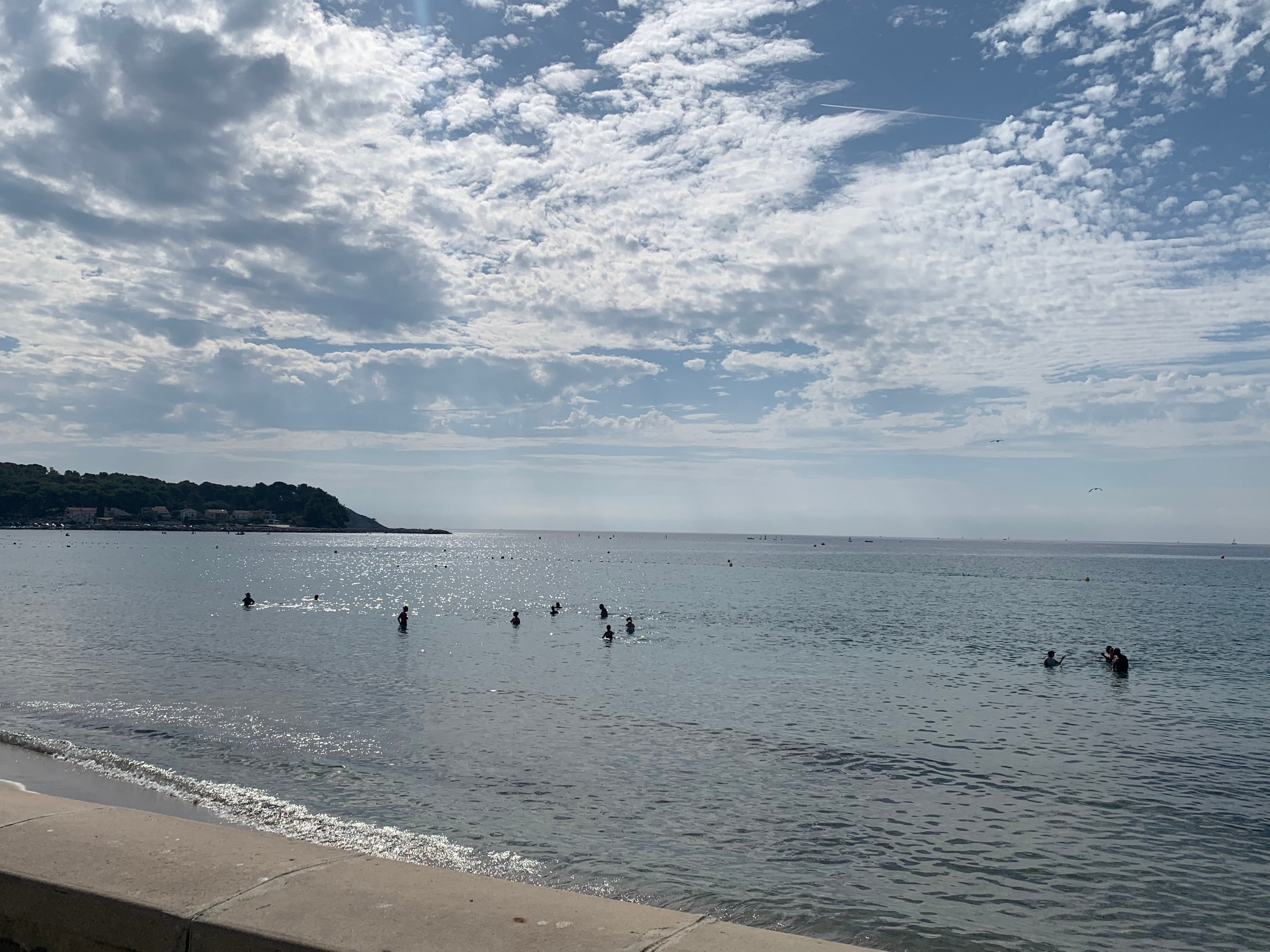
“Over the last four and a bit years, it definitely has developed,” Jones, the former Ireland international who will join England’s coaching staff after this tournament, continues. “There are players that are four years older, that have now become fathers or husbands, or younger guys coming in that maybe don’t have certain processes down. They must learn, and the group must adapt to accommodate them. It’s definitely developed over the last four years.”
South Africa is a country that still faces many troubles. The degree to which the Springboks can be a uniting force can be overstated, some South Africans suggest, but it is repeated with true belief by the squad, used as a motivator, an idea that they are doing this for something more than just solely sporting success.
The central figure again will be Siya Kolisi, the first Black captain of the side, whose trophy lift four years ago has become an iconic image. His return inside four months from a serious knee injury to make this tournament is testament to the character of an individual who overcame so much to end up captaining his country.
“I’ve known Siya since he came to Western Province as a young U19 boy,” Fourie, four years Kolisi’s senior, recalls. “The way he’s grown as a person and as a leader is amazing. He’s a special human being.
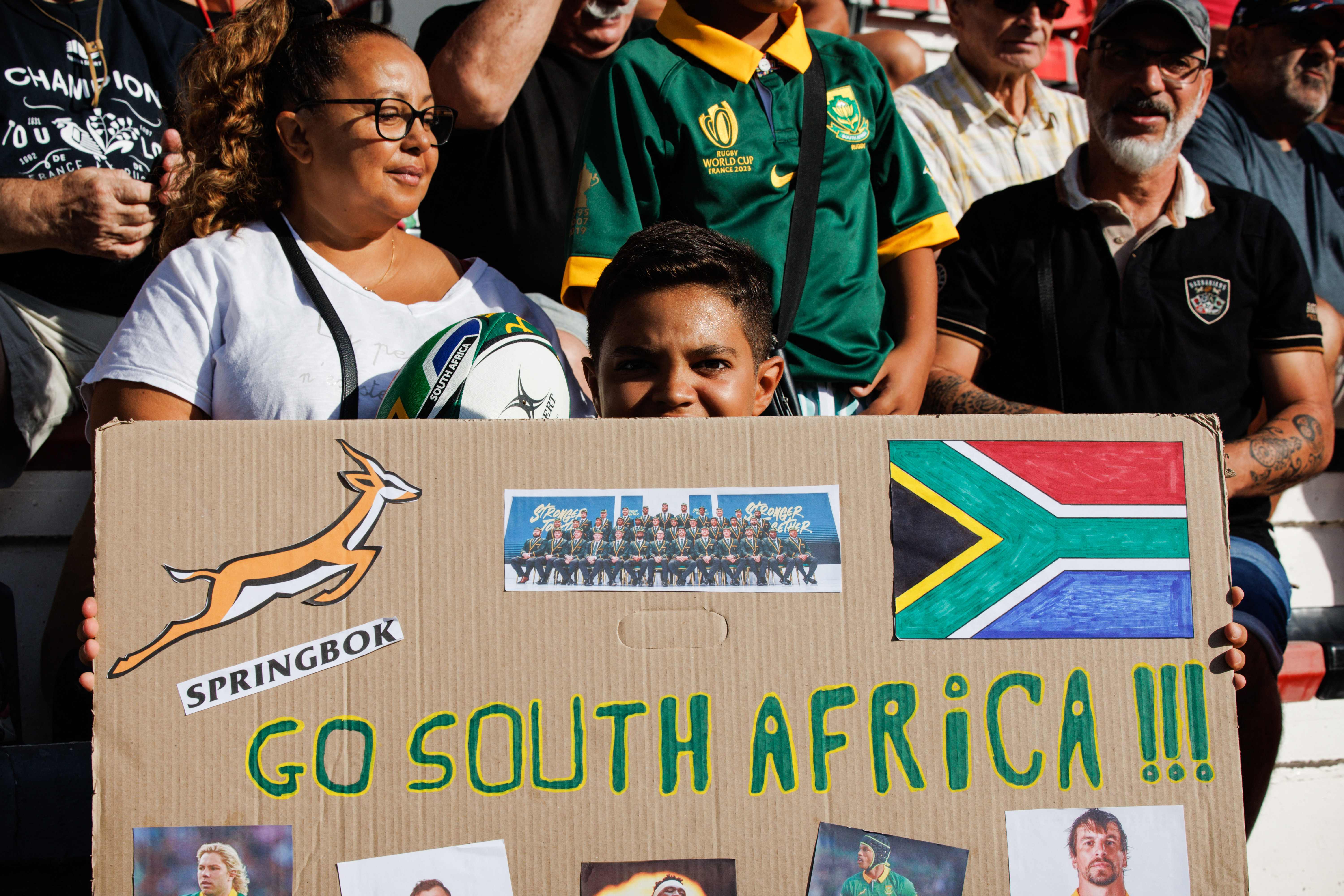
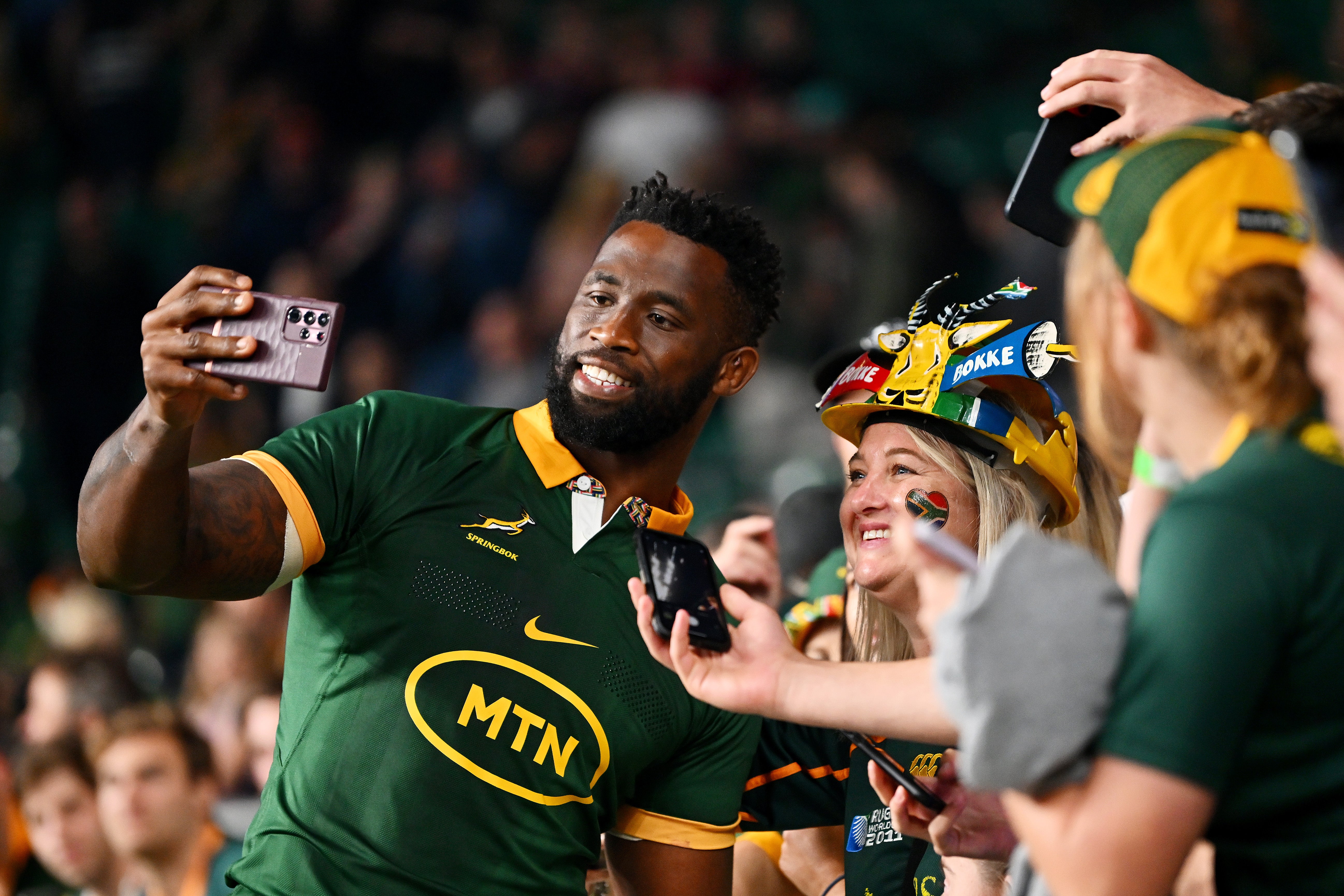
“To come back four months after a knee injury and play so well speaks volumes about the man he is. That shows the mentality he has. He’s a guy that does the work through his actions and his aura, he creates a vibe and an energy inside the team building.”
South Africa hope their World Cup will extend through to 30 October and the final in Paris. It is a long old slog, and managing the players mentally is of almost equal importance to their physical preparation.
“It is a World Cup, it is the pinnacle of rugby, there is a lot of pressure,” explains lock Marvin Orie. “We have a lot of people in South Africa that we want to make proud. It’s about trying to handle that as best as you can.
“For me, it’s important on off days to try to get away from the game a bit and not think too much about rugby. For everyone it is different – some people like to play golf, and we are right next to the beach so luckily we can go and have a swim, or go for ice cream. We can take some bikes from the hotel and see a bit of Toulon.”
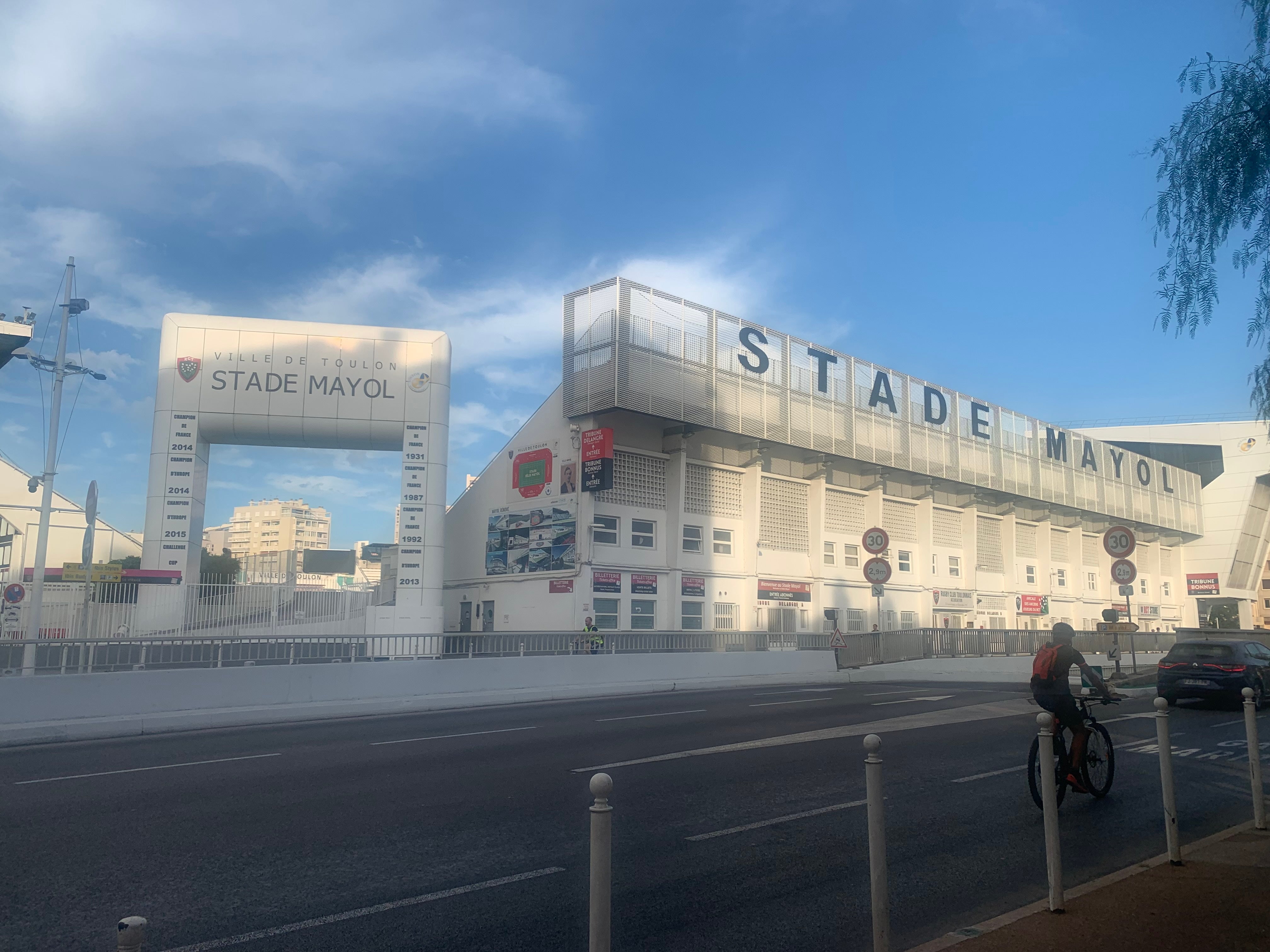
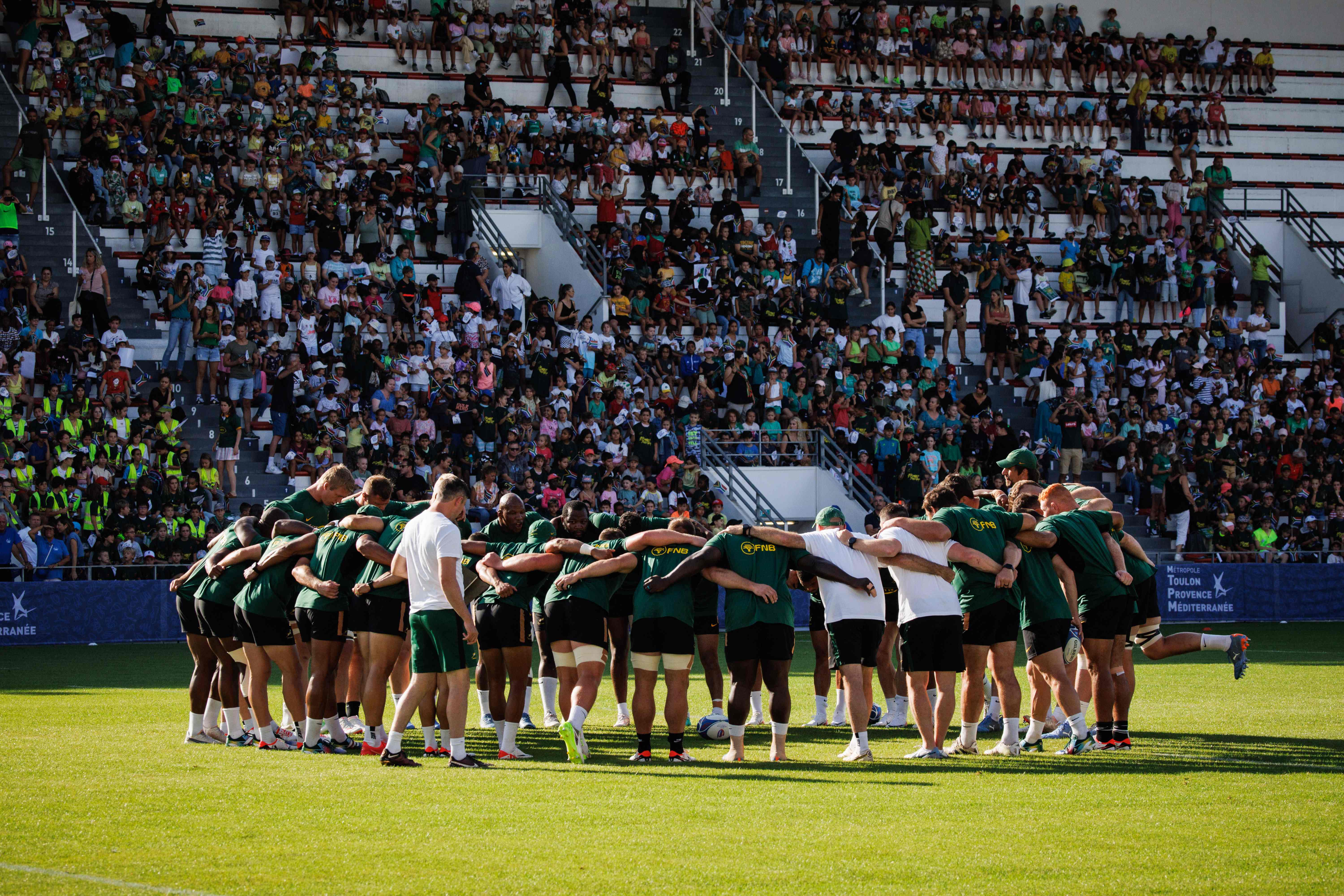
Perhaps it is the fact that so much of the squad were winners four years ago, but there is certainly a relaxed vibe to Springboks camp. It may help that The Independent visits in a week where South Africa play Romania, the weakest side in the pool, but it reflects also the certainty that surrounds this team, of style, structure and standing in the world.
Each World Cup is different and it will not simply be a case of transplanting the things that worked four years ago on to this year’s tournament. That winning experience is immensely valuable in instilling belief, though, with an itinerary that presents itself as much tougher this time around. Get out of the pool, as is now likely, and a quarter final against either France or New Zealand could end South Africa’s tournament at the last eight stage.
The longer time between fixtures at this World Cup leaves plenty of time for coaches to review footage of what the other contenders are up to. But the overall focus is internal – the Springboks are confident they have the right blend to do it all over again.
“Every team has their own way of playing, their DNA, their style that they want to stick to,” says Jones. “We won’t be too distracted by how other teams go. Within our group, we have a goal and a belief that we can do it.”






Join our commenting forum
Join thought-provoking conversations, follow other Independent readers and see their replies
Comments